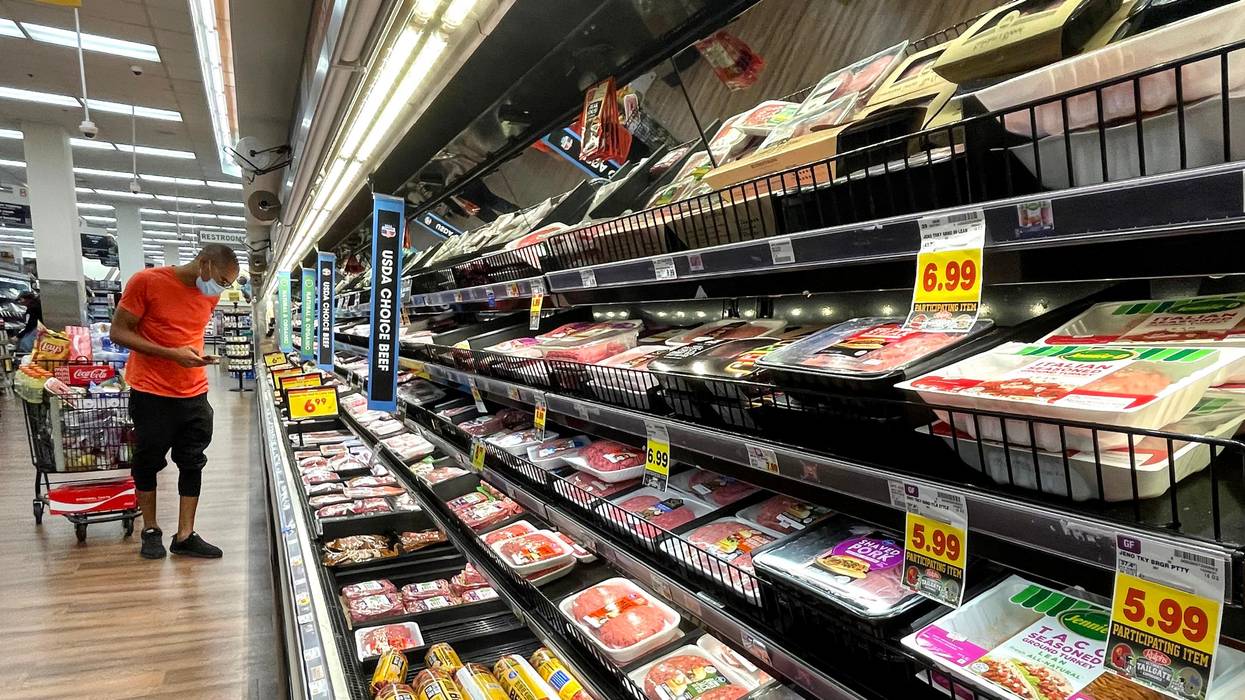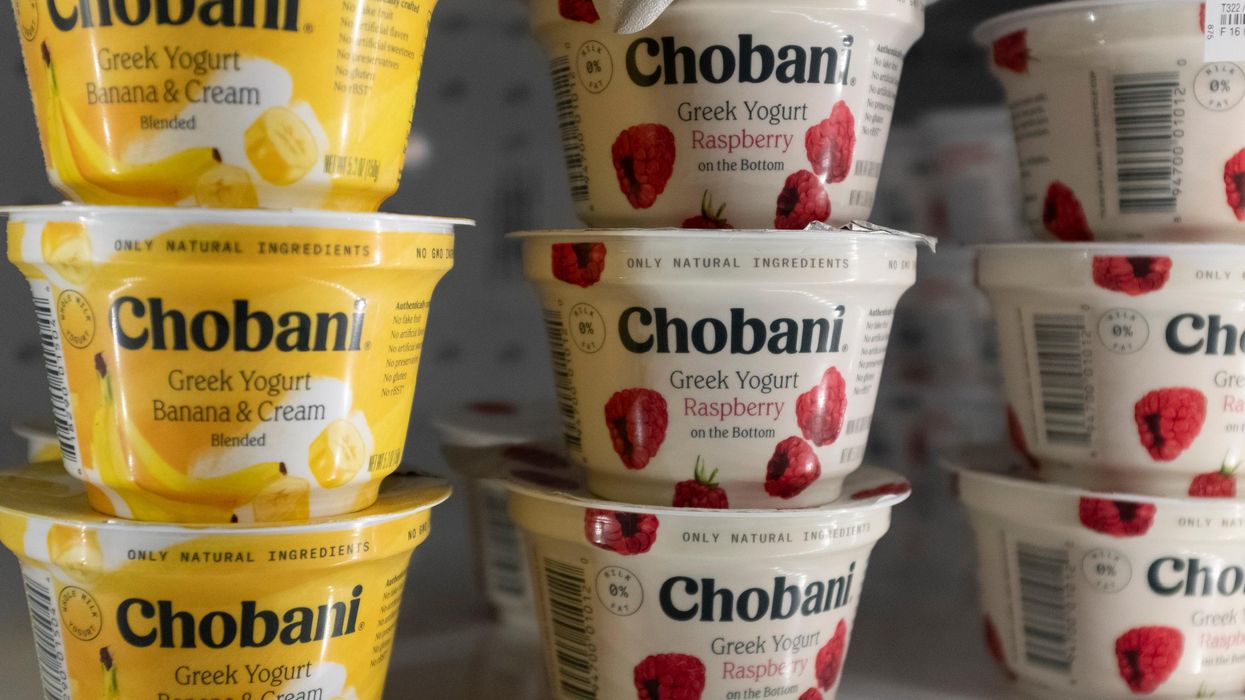"It's shameful that Americans are left food insecure and have to skip meals while corporations and their wealthy shareholders enjoy the spoils of supersized profits under unjustified price hikes," she added. "It's clear that the food industry will not hold itself accountable. It's time Congress do more to rein in corporate greed, one of the main factors currently driving up costs for families."
"It's time Congress do more to rein in corporate greed, one of the main factors currently driving up costs for families."
The Accountable.US report takes aim at General Mills, Kraft Heinz, and Mondelez—three of the top "at home" food companies in the United States based on
market capitalization—focusing on January through March, the first quarter of this calendar year.
General Mills is one of a few companies that dominate the U.S. breakfast cereal market, with brands including Cocoa Puffs, Cookie Crisp, and Lucky Charms. Kraft Heinz is known for not only ketchup and macaroni and cheese but also Jell-O, Kool-Aid, and Philadelphia Cream Cheese. Mondelez's top brands include Chips Ahoy! and belVita.
The companies' combined net earnings for the quarter rose by 51% year-over-year (YoY) to a combined $3.47 billion, and the trio collectively spent over $1.3 billion on shareholder dividends, Accountable.US found. Of the three, only General Mills saw its earnings drop from the first three months of 2022 to the same period in 2023—though the company still spent more on dividends this year compared with last year.
The first three months of this calendar year were the third quarter of General Mills' 2023 fiscal year. Accountable.US cited Reuters' March 23 report that the company "raised its fiscal 2023 forecasts for a fourth time after beating estimates for quarterly results, helped by price increases and steady demand for its packaged-food products."
The watchdog also highlighted that General Mills "saw its net earnings increase by nearly $2 billion YoY for the first nine months of FY 2023, as the company spent over $2.16 billion on its shareholders through a combination of dividends and stock buybacks."
For Kraft Heinz, the watchdog referenced
Reuters reporting earlier this month that it "raised its full-year profit forecast on Wednesday on the back of higher prices and sustained demand for its packaged food items." The analysis adds that the company "saw its Q1 2023 net income increase by 7.1% YoY to $837 million and spent $491 million on shareholder dividends."
Accountable.US noted that during the first quarter of this year, "Mondelez—which touted price hikes for its double-digit increases in revenue and earnings—returned $928 million to shareholders through a combination of dividends and stock buybacks, after reporting $2.1 billion in profits, a 143% increase from last year."
The group used its new analysis to call out the Federal Reserve, saying that "the findings are the most recent evidence that while inflation is slowing, the Fed's single-minded policy of repeated interest rate hikes [is] doing little to contain the primary driver of rising costs—corporate greed."
The report also emphasizes recent admissions from economists that corporate greed is driving inflation—which progressive organizations and experts have been stressing for months in response to the Fed's interest rate hikes.
As the analysis points out,
The Wall Street Journal reported earlier this month:
Consumers have... been unusually willing to accept higher prices lately. Paul Donovan, chief economist at
UBS Global Wealth Management, said businesses are betting that consumers will go along because they know about supply bottlenecks and higher energy prices.
"They are confident that they can convince consumers that it isn't their fault, and it won't damage their brand," Mr. Donovan said.
According to the consumer price index report released Wednesday by the U.S. Bureau of Labor Statistics, "the food at home index fell 0.2%" from March to April. While cereals and bakery products saw a slight increase, there were decreases for milk; nonalcoholic beverages; fruits and vegetables; and meats, poultry, fish, and eggs.
However, the bureau's report also provides context from the past year: "The food at home index rose 7.1% over the last 12 months. The index for cereals and bakery products rose 12.4% over the 12 months ending in April. The remaining major grocery store food groups posted increases ranging from 2.0% (fruits and vegetables) to 10.4% (other food at home)."
The Accountable.US analysis notes that in January and February, "food-equity advocates warned that 'food insecurity for millions of American consumers is worsening' despite overall inflation easing, with higher numbers of food stamp recipients reporting 'skipping meals, eating less, and going to food banks to manage costs.'"
The U.S. Census Bureau has estimated throughout 2023 that based on household surveys, roughly 25 million people sometimes or often did not have enough to eat in the previous seven days. The U.S. Department of Agriculture reports that nearly 34 million people live in food-insecure households—though research published last month suggests that figure is likely an undercount.
Additionally, food insecurity figures don't provide a full picture of how many families struggle to stay fed, as Claire Babineaux-Fontenot, CEO of food bank network Feeding America, explained to CNN in March: "The nuance is that some people are not 'food insecure' because they get access to the charitable food system. That doesn't mean they're able to achieve self-sufficiency."
U.S. households are also contending with losing assistance related to the Covid-19 pandemic—including the end of the expanded child tax credit, universal free school meals, and increased Supplemental Nutrition Assistance Program (SNAP) benefits, formerly known as food stamps.
As Common Dreams reported in late February, while experts warned that the end to boosted SNAP benefits would cause a rise in U.S. poverty, Public Citizen president Robert Weissman declared that "a decent society would not let this happen."




